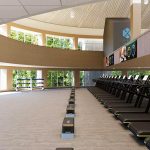Dagger and Yakima have signed up as Premier level sponsors for this summer's Clif Bar “Natural Energy Tour” to spread the word about renewable energy and the reduction of global warming. Clif Bar will send a retrofitted bus run entirely on biodiesel fuel from Tampa to Boston from June through Labor Day to educate people about global warming and encourage support for the McCain-Lieberman Climate Stewardship Act, a bill aimed at reducing industry-generated greenhouse gases (see http://www.undoit.org.) AT Paddles and Harmony (kayaking accessories) will also participate in the tour as product sponsors.
“This is a solid grassroots marketing effort with a terrific educational component,” noted Mike Steck, director of marketing for WaterMark brands Dagger, Yakima, AT Paddles and Harmony. “Not only are we exposing our brands and products to target consumers, we are helping spread the message about the importance of taking care of the environment the same beliefs our Watermark brands were founded upon.”
Grady O'Shaughnessy, Sports Marketing Coordinator at Clif Bar, added, “Reaching out to people attracted to the outdoor lifestyle is a smart way to build a constituency for the environment. That's why displaying kayaks, surfboards and bikes on top of the tour bus will be an ideal way to attract attention.”
Grady continued, “Having great outdoor companies like Dagger and Yakima provide boats and racks and help us spread the word will create real buzz for our Natural Energy Tour. With additional support from Mystic Surfboards, Patagonia, Santa Cruz bicycles and Trinity Springs water, we look forward to recruiting many new supporters for the environment this summer.”
Clif Bar will use a 22-foot-long, modified city bus run on B100 biodiesel fuel, that is, 100% biodiesel with no petroleum added. This fuel is clean-burning, biodegradable, non-toxic and renewable. Clif Bar will make its environmental statement even stronger by collaborating with NativeEnergy to make the entire tour “Climate Neutral”. That will entail buying wind credits toward the construction of a wind farm to offset the carbon emissions that will be generated from product shipping or incidental travel.













